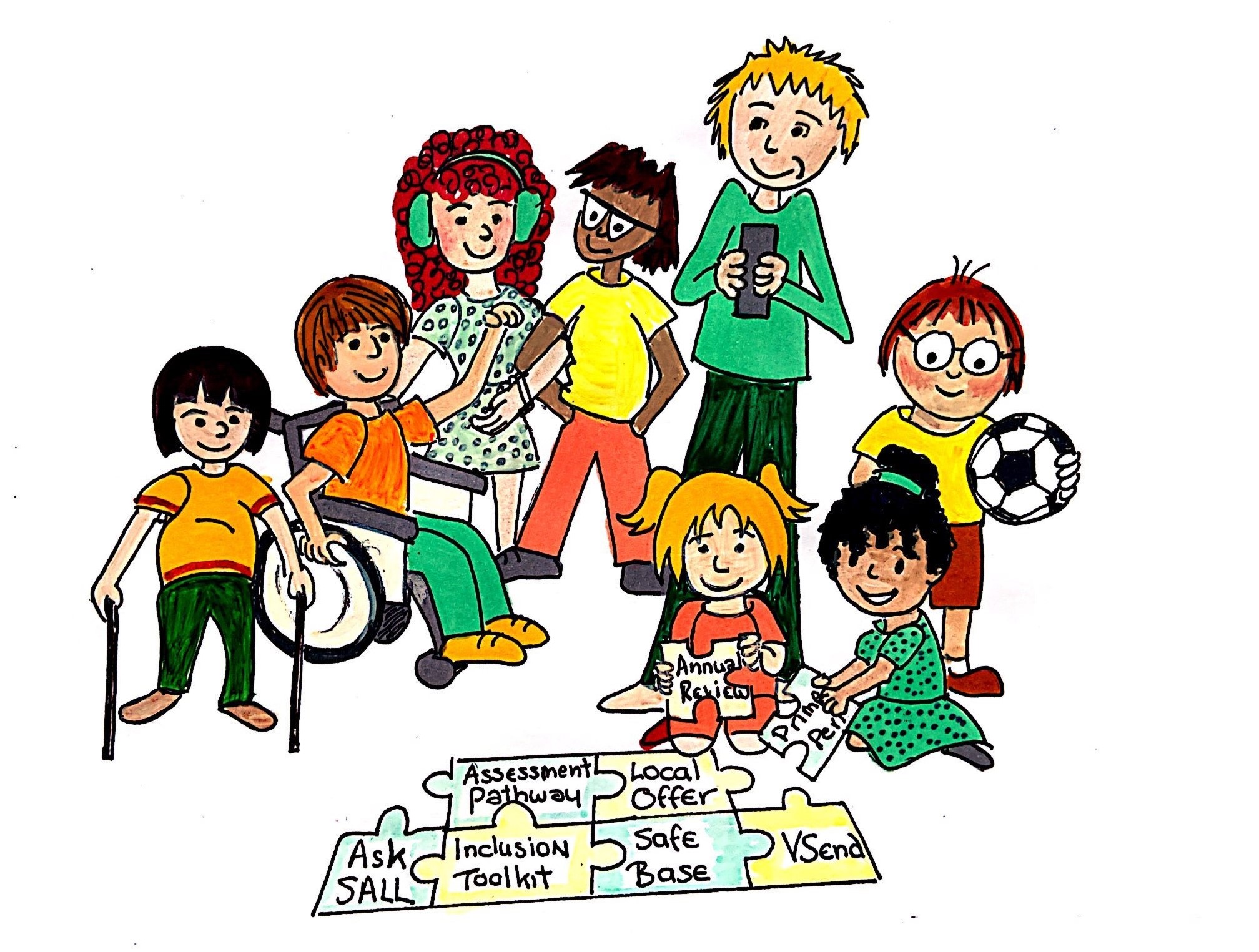Level 5-6 strategies to support specialist interventions
High quality teaching and targeted strategies, approaches and adaptations for pupils should be implemented and supplemented
0-5
- teaching approaches place a high emphasis on direct training, very finely graded and practical tasks which provide opportunities for frequent repetition and reinforcement
- children are taught strategies and provided with resources to assist with the development of independent learning through the use of:
- visual support to demarcate areas and resources
- visual support to offer choices and direct children
- use of Makaton signing to support communication
- settings should follow the assess-plan-do-review cycle to monitor progress through the use of the EYFS Development Matters document and evidence provided by the Speech and Language Therapists
- a monitoring system should be in place to assess child’s need, identify outcomes, implement support and monitor and evaluate progress.
- planned reviews including the parent and child should take place
- additional adults support the child individually, under the direction of the teacher or speech and language therapist to:
- work on modified curriculum tasks. For example, shorter more interactive repetitive stories, support for learning to include access to rebus symbols and Makaton signing
- access regular individual support. For example, for skill building activities as advised by a speech and language therapist
- encourage independence by the use of communication mats, communication books, demarcation and labelling of areas, the use of Makaton signing
5-16
- highly individualised learning programme developed by the SENDCo (or named person with responsibility for coordinating SEND) with support from, and in collaboration, with external specialists which evidences:
- individualised 1:1 support working on personalised targets as advised by the Speech and Language Therapy team or ECLIPS. Where specific language targets have been set, 1:1 time needs to be allocated for 20 minutes, 2 to 3 times weekly
- speech and language Therapist’s or ECLIPS advice reflected in lesson and curriculum planning and delivery overseen by the SENDCo
- explicitly teach the use of sarcasm, metaphors, multiple meanings, and other forms of non-literal language
- identify any idioms or slang that is used in everyday conversation and explain its meaning
- give a vocabulary list of topic related non-literal language with explanations of meanings using pictures where possible
- an appropriate level of adult support to work towards specific targets
- adult support in class to transfer and generalise language skills learnt in 1:1 environment
- wide multidisciplinary team involvement may be required
- schools may plan and provide access to more specialised training for key workers from SALT or ECLIPS. For example, ELKLAN
- pre-teaching and over learning of key vocabulary and concepts
- classroom support time will include the supply of teaching and learning resources and delivery of intervention
- enhanced use of visual support for language and learning. For example shape coding, Makaton, cued articulation and vocabulary mats


